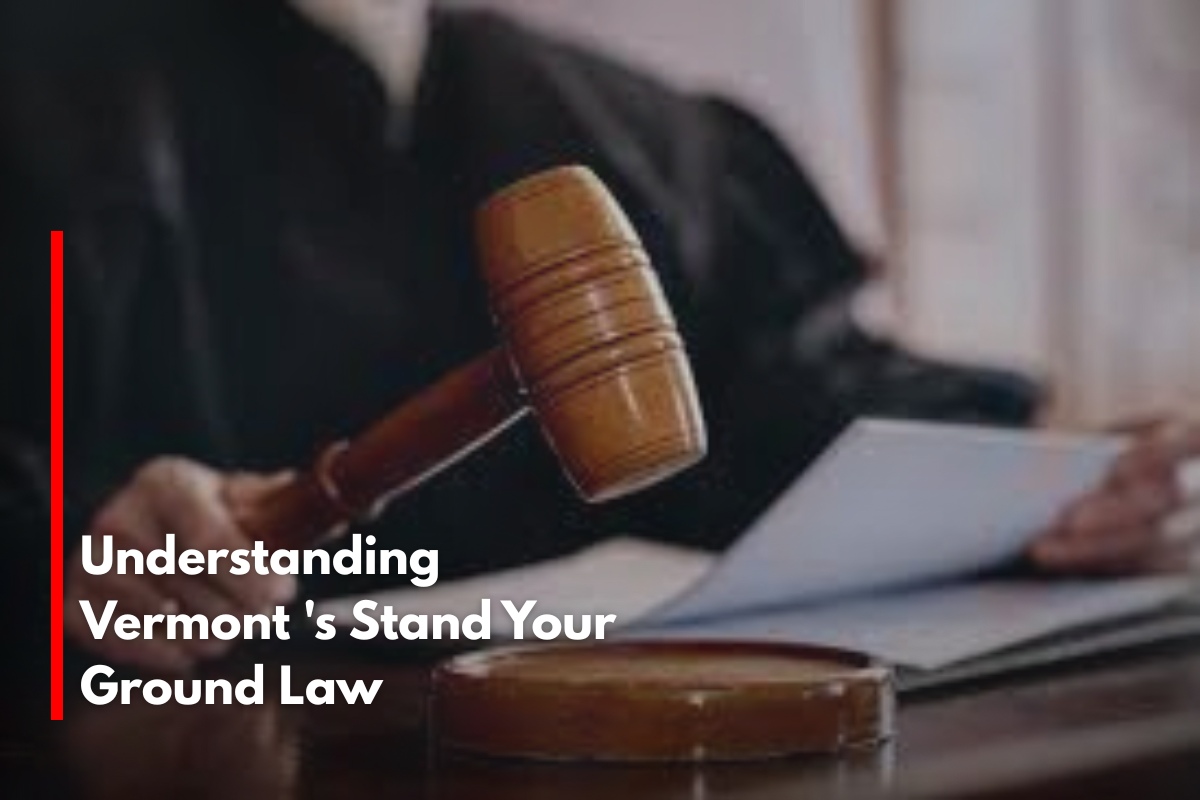In the complex landscape of self-defense laws in the United States, Vermont holds a unique position with regard to the concept known as the “Stand Your Ground” law. While many states have explicit statutes allowing individuals to use deadly force without the duty to retreat when facing a threat in public, Vermont’s approach is notably different.
This article unpacks what Vermont’s law entails, how it compares to standard “Stand Your Ground” laws, and what residents need to know about protecting themselves legally.
What is a Stand Your Ground Law?
Typically, a Stand Your Ground law permits a person to use reasonable, including deadly, force in self-defense without the obligation to retreat first, as long as they are lawfully present. This law removes the traditional legal requirement that a person must try to avoid conflict by withdrawing before resorting to force.
Such laws are meant to strengthen the right of self-defense beyond one’s home or workplace—the so-called “Castle Doctrine”—and apply it to public spaces, though specifics can differ from state to state.
Vermont’s Legal Framework: No Statutory Stand Your Ground
Unlike many states, Vermont does not have a statutory Stand Your Ground law. Instead, its legal approach relies largely on judicial decisions rather than legislative statutes to define self-defense rights. However, the Vermont Supreme Court has ruled there is no absolute duty to retreat before using force, meaning under certain circumstances, individuals may stand their ground.
That said, Vermont enforces a “duty to retreat” principle, requiring individuals to try to avoid confrontation if safely possible before using force, especially deadly force. This creates a nuanced balance: while there isn’t a law explicitly named “Stand Your Ground,” individuals generally must demonstrate that retreat was not safely feasible to justify the use of force.
The Duty to Retreat and Use of Force
Under Vermont law (13 V.S.A. § 2305), deadly force is justified only to prevent imminent death or serious bodily harm or in cases of forcible felonies such as robbery or sexual assault. Even then, the individual must try to retreat or avoid the conflict if they can do so safely. The burden of proof often lies on the defendant to prove that they could not have retreated safely.
Exceptions exist within a person’s own dwelling, where the Castle Doctrine applies, allowing use of force without retreat. This mirrors many other states’ approaches emphasizing protection of the home.
Judicial Interpretations and Case Law
Important Vermont cases such as State v. Hatcher (1997) clarified that no duty to retreat applies inside one’s home, reinforcing the Castle Doctrine. Meanwhile, State v. Albarelli (2016) highlighted complexities in self-defense claims, particularly on who bears the burden to disprove justifiable force.
These decisions underscore Vermont’s unique position, relying more on case-by-case judicial interpretation rather than clear-cut statutory laws.
Implications for Vermonters
Vermont residents should understand that:
They are generally required to attempt retreat before using force in public, where safely possible.
Using deadly force without retreating may expose individuals to prosecution unless justified by necessity.
The Castle Doctrine applies firmly inside homes, providing robust protections.
Self-defense laws in Vermont place a heavier responsibility on the individual to prove retreat was impossible.
Vermont’s self-defense framework presents a distinctive blend of judicial rulings and statutory mandates that emphasize caution and retreat before force, contrasting with explicit Stand Your Ground laws in other states. Understanding this legal landscape is crucial for Vermonters to navigate their rights and responsibilities when faced with threats.
Sources
(https://giffords.org/lawcenter/state-laws/stand-your-ground-in-vermont/)
(https://crateclub.com/blogs/loadout/does-vermont-have-a-self-defense-law-an-in-depth-analysis)
(https://vermontdailychronicle.com/soulia-should-vermont-consider-a-stand-your-ground-law/)
(https://www.justia.com/criminal/defenses/stand-your-ground-laws-50-state-survey/)
(https://legislature.vermont.gov/Documents/2022/WorkGroups/House%20Judiciary/Bills/S.184/Drafts,%20Amendments%20and%20Other%20Legal%20Documents/S.184~Erik%20Fitzpatrick~Meaning%20of%20%E2%80%98Necessary%E2%80%99%20When%20Using%20Force%20in%20Self%20Defense~3-23-2022.pdf)











